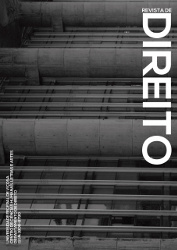Direitos sociais e política econômica no Brasil (2015-16)
entre as urnas e a fuga de capital
DOI:
https://doi.org/10.32361/2022140113193Palavras-chave:
Direitos sociais, Fuga de capital, Austeridade econômicaResumo
Desde 2015, a política econômica brasileira passou a priorizar medidas de austeridade destinadas a resgatar a confiança dos mercados. A guinada ocorreu após eleições em que a mensagem majoritária nas urnas havia sido de continuidade de políticas redistributivas, correspondentes a direitos sociais. O projeto de arrocho foi intensificado em 2016, sobretudo após a queda do governo eleito, acentuando o contraste com as urnas. O presente ensaio problematiza, com base em elementos jurídicos, econômicos e das relações internacionais, a tensão estabelecida entre as urnas e as expectativas de investidores financeiros na definição da política econômica, com impacto para as instituições jurídicas.
Downloads
Referências
BHAGWATI, Jagdish. In defense of globalization. New York: Oxford University Press, 2004.
BLYTH, Mark. The transformation of the Swedish model: economic ideas, distributional conflict, and institutional change. World Politics, v. 54, n. 1, 2001, p. 1-26.
BRESSER-PEREIRA, Luiz Carlos. A crise financeira global e depois: um novo capitalismo? Novos Estudos (CEBRAP), n. 86, 2010, p. 51-72.
CASTRO, Marcus Faro de. Análise Jurídica da Política Econômica. Revista da Procuradoria-Geral do Banco Central, v. 3, 2009, p. 17-71.
CASTRO, Marcus Faro de. Economic development and the legal foundations of regulation in Brazil. De Gruyter – Law and Development Review, v. 6, n. 1, 2013, p. 61-115.
CASTRO, Marcus Faro de. Formas jurídicas e mudança social: interações entre o direito, a filosofia, a política e a economia. São Paulo: Saraiva, 2012.
CASTRO, Marcus Faro de. Instituições econômicas: evolução de seus elementos constitucionais na sociedade de mercado. Revista de Direito Empresarial. Curitiba, n. 6, jul./dez. 2006, p. 41-62.
CHANG, Ha-Joon; GRABEL, Illene. Reclaiming development: an alternative economic policy manual. London: Zed Books, 2004.
COASE, Ronald H. The nature of the firm. Economica, New Series, v. 4, n. 16, 1937, p. 386-405.
DAVIDSON, Paul. Post keynesian economics: solving the crisis in economic theory. In: BELL, Daniel; KRISTOL; Irving (eds). The crisis in economic theory. New York: Basic Books, 1981, p. 151-173.
DRUMMOND, Carlos. A punhalada fiscal de Levy e Dilma: medidas do governo atingem os trabalhadores mais vulneráveis. Carta Capital. 2015. Disponível em: http://www.cartacapital.com.br/revista/833/punhalada-fiscal-5133.html. Acesso em: 12 dez. 2016.
EICHENGREEN, Barry. Globalizing capital: a history of the international monetary system. 2. ed. Princeton: Princeton University Press, 2008.
FIANI, Ronaldo. Cooperação e conflito: instituições e desenvolvimento econômico. Rio de Janeiro: Elsevier, 2011.
GALBRAITH, John Kenneth. Moeda: de onde veio, para onde foi. 2. ed. São Paulo: Pioneira, 1997.
GALBRAITH, John Kenneth. O pensamento econômico em perspectiva: uma história crítica. São Paulo: Pioneira, 1989.
GUTTMANN, Robert. Uma introdução ao capitalismo dirigido pelas finanças. Novos Estudos (CEBRAP), n. 82, 2008, p. 11-33.
HALL, Peter A. The movement from keynesianism to monetarism: institutional analysis and British economic policy in the 1970s. In: STEINMO, Sven; THELEN, Kathleen; LONGSTRETH, Frank (eds.). Structuring politics: historical institutionalism in comparative analysis. Cambridge: Cambridge University Press, 1992. p. 90-113.
HELLEINER, Eric. States and the reemergence of global finance: from Bretton Woods to the 1990s. Ithaca: Cornell University Press, 1994.
KEYNES, John Maynard. A teoria geral do emprego, do juro e da moeda. São Paulo: Nova Cultural, 1996 [1936].
KRUGMAN, Paul. The return of depression economics and the crisis of 2008. New York: W.W. Norton & Company, 2009.
LA PORTA, Rafael; LOPEZ-DE-SILANEZ, Florencio; SHLEIFER, Andrei; VISHNY, Robert W. Law and finance. The Journal of Political Economy, v. 106, n. 6, 1998, p. 1113-1155.
MARTÍNEZ, Juan; SANTISO, Javier. Financial markets and politics: the confidence game in Latin American emerging economies. International Political Science Review, 2003, v. 24, n. 3, p. 363-395.
MERCURO, Nicholas; MEDEMA, Steven G. Chicago Law and Economics. In: MERCURO, Nicholas; MEDEMA, Steven G. Economics and the law: from Posner to post-modernism and beyond. 2. ed. Princeton: Princeton University Press, 2006, p. 94-155.
NORTH, Douglass C. Institutions, Institutional Change and Economic Performance. Cambridge: Cambridge University Press, 1991.
PECK, Jamie; THEODORE; Nik; BRENNER, Neil. Mal-estar no pós-neoliberalismo. Novos Estudos (CEBRAP), n. 92, 2012, p. 59-78.
PIKETTY, Thomas. Introduction. In: PIKETTY, Thomas. Capital in the twenty-first century. Cambridge: Harvard University Press, 2014, p. 1-35.
PLEHWE, Dieter. Introduction. In: MIROWSKI, Philip; PLEHWE, Dieter (eds.). The road from Mont Pèlerin: the making of the neoliberal thought collective. Cambridge: Harvard University Press, 2009, p. 1-44.
POLANYI, Karl. The great transformation: the political and economic origins of our time. Boston: Beacon Press, 2001 [1944].
RODRIK, Dani. One economics, many recipes: globalization, institutions and economic growth. Princeton: Princeton University Press, 2007.
RUGGIE, John Gerard. International regimes, transactions, and change: embedded liberalism in the postwar economic order. International Organization, v. 36, n. 2, 1982, p. 379-415.
SALAMA, Bruno. O que é pesquisa em direito e economia? Cadernos de Direito GV, v. 5, n. 2, mar. 2008, p. 5-58.
SATO, Eiiti. Economia e política das relações internacionais. Belo Horizonte: Fino Traço, 2012.
TELES, Stephen M. The rise of the conservative legal movement: the battle for control of the law. Princeton: Princeton University Press, 2008.
TURNER, Rachel S. Neo-liberal ideology: history, concepts and policies. Edinburgh: Edinburgh University Press, 2008.
WOLF, Martin. From imbalances to the subprime crisis. In: WOLF, Martin. Fixing global finance. 2. ed. Baltimore: Johns Hopkins University Press, 2010, p. 193-214.
Downloads
Publicado
Como Citar
Edição
Seção
Licença
Copyright (c) 2022 Revista de Direito

Este trabalho está licenciado sob uma licença Creative Commons Attribution-NonCommercial 4.0 International License.
O trabalho publicado é de inteira responsabilidade dos autores, cabendo à Revista de Direito apenas a sua avaliação, na qualidade de veículo de publicação científica.
Após a publicação, os autores cedem os direitos autorais, que passam a ser de propriedade da Revista de Direito.
A Revista de Direito não se responsabiliza por eventuais violações à Lei nº 9.610/1998, Lei de Direito Autoral.















